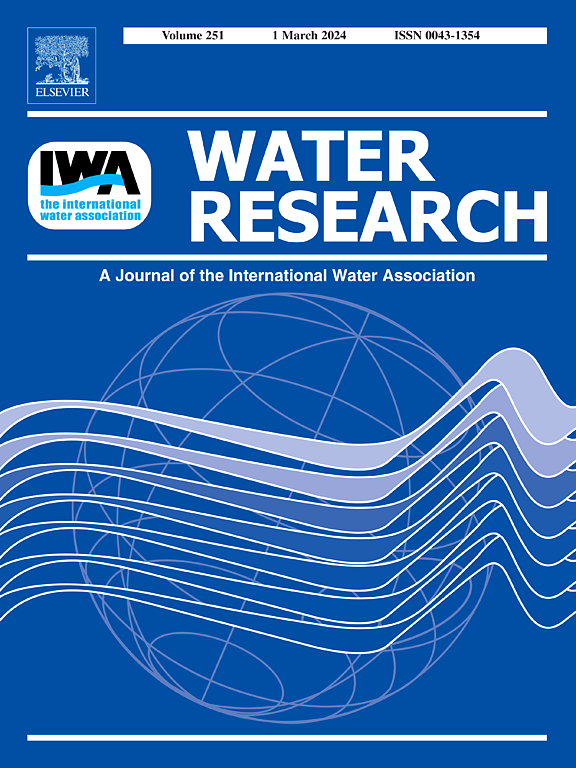Machine learning strategy secures urban smart drinking water treatment plant through incremental advances
IF 11.4
1区 环境科学与生态学
Q1 ENGINEERING, ENVIRONMENTAL
引用次数: 0
Abstract
The integration of machine learning into urban drinking water treatment plants (DWTPs) offers a transformative pathway to ensure drinking water safety while promoting the development of smart, low-carbon cities. However, the effectiveness of these systems is frequently hindered by challenges related to data security and reliability, including imprecise control logic, sensor inconsistencies, and data transmission errors. In this study, we introduce a novel progressive Step-by-Step (SBS) machine learning strategy, initially applied to precise disinfectant dosage control in drinking water treatment and subsequently extended to enhance the data security of the entire water supply system. Among eight evaluated methods, the deep neural network integrated with the SBS strategy demonstrated superior performance. In a real-world DWTP, the SBS model significantly outperformed manual fuzzy control, reducing disinfectant dosage by 22.0 % and effluent turbidity by 16.0 %. Furthermore, through simulations of extreme data-missing scenarios and the application of SBS-based corrections, the robustness and security of DWTPs were maintained. The integration of the SBS strategy has the potential to significantly improve emergency management in urban water systems and elevate the intelligence of water supply networks. This approach not only strengthens urban resilience but also supports the safe and sustainable evolution of smart urban water systems.


求助全文
约1分钟内获得全文
求助全文
来源期刊

Water Research
环境科学-工程:环境
CiteScore
20.80
自引率
9.40%
发文量
1307
审稿时长
38 days
期刊介绍:
Water Research, along with its open access companion journal Water Research X, serves as a platform for publishing original research papers covering various aspects of the science and technology related to the anthropogenic water cycle, water quality, and its management worldwide. The audience targeted by the journal comprises biologists, chemical engineers, chemists, civil engineers, environmental engineers, limnologists, and microbiologists. The scope of the journal include:
•Treatment processes for water and wastewaters (municipal, agricultural, industrial, and on-site treatment), including resource recovery and residuals management;
•Urban hydrology including sewer systems, stormwater management, and green infrastructure;
•Drinking water treatment and distribution;
•Potable and non-potable water reuse;
•Sanitation, public health, and risk assessment;
•Anaerobic digestion, solid and hazardous waste management, including source characterization and the effects and control of leachates and gaseous emissions;
•Contaminants (chemical, microbial, anthropogenic particles such as nanoparticles or microplastics) and related water quality sensing, monitoring, fate, and assessment;
•Anthropogenic impacts on inland, tidal, coastal and urban waters, focusing on surface and ground waters, and point and non-point sources of pollution;
•Environmental restoration, linked to surface water, groundwater and groundwater remediation;
•Analysis of the interfaces between sediments and water, and between water and atmosphere, focusing specifically on anthropogenic impacts;
•Mathematical modelling, systems analysis, machine learning, and beneficial use of big data related to the anthropogenic water cycle;
•Socio-economic, policy, and regulations studies.
 求助内容:
求助内容: 应助结果提醒方式:
应助结果提醒方式:


